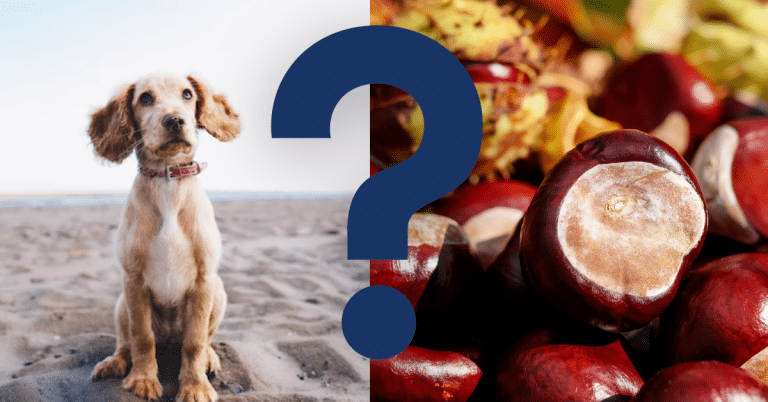Can Dogs Eat Wheat Bread? A Vet’s Summary

Wheat bread contains gluten, but can dogs eat wheat bread.
Although dogs may consume modest amounts of wheat bread without suffering any immediate consequences, it is often not advised to include it regularly in their diet. Some dogs may be sensitive to or allergic to gluten, which is an ingredient in wheat bread. Additionally, bread even wheat bread is not nutritionally necessary for dogs and, if ingested in excess, may lead to weight gain.
Let’s dive in:
Benefits Of Wheat Bread For Dogs
Although wheat bread is not essential for a dog’s diet, it can provide the following advantages when eaten in moderation:
- Fibre: A little quantity of dietary fibre, such as that found in wheat bread, can help with digestion and encourage regular bowel movements.
- Wheat bread includes carbs, which can be used by dogs as a source of energy. However, it’s crucial to remember that for best health, dogs mostly need protein and fat in their diet.
- Taste and Variety: As an occasional treat or complement to their meals, some dogs may like the flavour and texture of wheat bread. It can diversify their diet and increase the enjoyment of meals for them.
Despite these possible advantages, it’s important to stress that wheat bread should only be given to dogs sparingly and on occasion as a treat. A diet high in bread can cause weight gain, gastrointestinal distress, and other health problems, especially if it contains additives like salt or sugar. Always put a well-balanced feed designed especially for dogs first to make sure their nutritional requirements are satisfied.

How To Safely Give Wheat Bread To Dogs
Here are some suggestions to follow if you choose to sometimes treat your dog with wheat bread to ensure its safety:
- The key is moderation: Dogs should only be given limited amounts of wheat bread. As a rare treat, a tiny slice or a few nibbles will usually do.
- Eliminate any potential risks: Check the wheat bread for any potentially dangerous substances before giving it to your dog. To protect your dog, stay away from bread that contains raisins, almonds, chocolate, onions, garlic, or artificial sweeteners like xylitol.
- When introducing wheat bread to your dog’s diet for the first time, watch for any negative responses. Keep an eye out for any symptoms of food sensitivities or allergies, such as itchiness, vomiting, diarrhoea, or behavioural problems. Give your dog no more wheat bread if you see any adverse effects.
- Think about toasting or crumbling: You may lightly toast the wheat bread or break it up into tiny pieces to make it simpler for your dog to ingest and digest. Additionally, it may assist children avoid swallowing huge pieces.
- Keep in mind that wheat bread shouldn’t be used in place of your dog’s usual, nutritionally balanced food. It should only be used occasionally as a treat or supplement.
- Speak with your veterinarian: Your veterinarian should always be consulted if you have any worries or inquiries regarding feeding wheat bread to your dog. Based on the requirements and health situation of your dog, they may offer tailored guidance.
Dogs can consume wheat bread in moderation, but it should never be the main or only food they consume. A high-quality, balanced dog food that is suitable for their age, size, and health needs should be their primary source of nourishment.
Will Wheat Bread Make A Dog Sick?
It is doubtful that giving a dog tiny amounts of wheat bread will make them sick right away or severely. However, there are a few things to take into account:
- Gluten Sensitivity: The protein gluten, which may be found in wheat bread, may cause intolerance or sensitivity in some dogs. In these circumstances, eating wheat bread may cause digestive distress, including signs like diarrhoea, vomiting, or an abundance of gas.
- Wheat allergies in dogs are less frequent than those to other foods like beef or chicken, but they can nonetheless happen. Wheat allergies can include respiratory difficulties, gastrointestinal problems, skin irritations, and itching.
- Ingredients and additives: Wheat bread sold commercially may have extras like sugar, salt, spices, or preservatives that are harmful to dogs. These ingredients can possibly upset a dog’s stomach or result in other negative effects.
It’s crucial to keep in mind that each dog is different, and their tolerance for certain meals might vary. Certain substances could make some dogs more sensitive than others. If you’re thinking of giving your dog wheat bread, start with a little and watch how they react. It is advised to stop feeding wheat bread and get advice from a veterinarian if you observe any symptoms of digestive discomfort or allergic reactions.
It is advised to focus on a nutritionally balanced food designed especially for dogs and to select treats that are manufactured with dog-friendly components to preserve your dog’s general health.

A Vet’s Summary
Veterinarians’ views on feeding wheat bread to dogs might differ. Wheat bread is neither poisonous or instantly hazardous to dogs, but it should only be given occasionally as a treat and in tiny amounts, according to the common opinion. Here are some things to think about:
- Nutritional Balance: Veterinarians stress that dogs have distinct nutritional demands from people and that most of their diets should be made up of balanced dog foods that are tailored to their individual requirements. Wheat bread does not provide the necessary amounts of protein, fat, vitamins, and minerals that dogs need.
- Allergies and Sensitivities: Wheat includes a protein called gluten, to which certain dogs may be allergic or sensitive. It is often advised against giving wheat bread to dogs who are known to be sensitive to or intolerant to gluten.
- Weight management: Wheat bread has a high calorie and carbohydrate content, which when consumed in excess, can lead to weight gain. It’s crucial to keep an eye on your dog’s calorie consumption and restrict treats like bread since obesity is a prevalent health concern in dogs that can result in several health issues.
- Individual Differences: Because each dog is different, they may not all tolerate the same meals. Wheat bread may cause more sensitivity in certain dogs than others. When introducing any new food to your dog, including wheat bread, it’s always a good idea to watch your dog’s unique reaction and speak with your veterinarian if you have any worries.
In the end, it’s best to speak with your veterinarian for tailored guidance based on the needs, state of health, and nutritional requirements of your dog. They may offer advice on the proper nutrition and suggest safe treats or better options that are better for your dog overall.
Videos To Watch
If you are wondering whether wheat bread is beneficial for dogs, watch this:
If you are wondering whether dogs can eat wheat bread, watch this:






